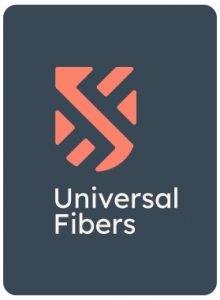Ecovative, a mycelium technology company, and ECCO Leather, a part of the Danish footwear brand ECCO and a supplier of innovative and premium leathers, have announced an ongoing partnership to develop and commercialize the next generation of mycelium materials for a range of new products.
The first-of-its-kind partnership, between a traditional leather tannery and a mycelium technology company, leverages Ecovative’s strengths as a global leader in developing sustainable materials with mycelium — the fibrous ‘root structure’ of mushrooms — and ECCO Leather’s expertise in the development and production of leather for a wide range of consumer products. Earlier this year, Ecovative and ECCO Leather began trading materials and methods to test mycelium materials against the high performance standards for commercial leather products and tanning processes. That collaboration is being expanded and extended to bring new products to market. A long-term off-take agreement expects to see Ecovative supplying ECCO Leather with the custom-tuned mycelium materials developed through this process, which ECCO Leather will transform into novel materials for both its own brand and to supply its material partner network.
This agreement opens the door to collaboration on the full scope of material development and commercialization possibilities. From research through testing and prototyping to products on store shelves, both companies will apply their unique expertise and production technologies — such as AirMycelium™ at Ecovative, which produces 100% pure mycelium hides to specification, and ECCO Leather’s innovative tannery processes that require less time, chemicals, and water than traditional textile finishing methods.
“The best and fastest way to advance new materials with biology is through partnerships just like this one with ECCO Leather,” says Gavin McIntyre, Chief Commercial Officer of Ecovative. “By combining our expertise and capacity to grow mycelium at scale, and ECCO Leather’s extensive understanding of what’s needed for the best leather products in the world, we will help bring the industry closer to true sustainability and circularity.”
McIntyre, together with Bart Hofman-Kronborg, the Group Manufacturing Director at ECCO Leather, will spearhead the new partnership at their respective companies. The project is expected to bring innovative mycelium materials to global scale, addressing a growing consumer demand for products that are environmentally positive.
“Mycelium represents a brand new canvas on which we can create with both traditional and novel material processes. It removes the complexities of the raw hide supply chain, while its fast and efficient growth allows us to bring a new material category to market, one that gives consumers an environmentally conscious choice over petrochemical-derived materials,” says Bart Hofman-Kronborg, Group Manufacturing Director of ECCO Leather. “Historically, tanneries have exclusively been associated with animal hides; with mycelium, this millennia-old industry can evolve, diversify and expand into a wider material market.”
Through Ecovative’s patented technologies, the growth of mycelium can be directed and customized to a variety of different applications. ECCO Leather has spent nearly a decade evaluating a wide range of novel materials in pursuit of greater sustainability. With expertise in producing high value products from sidestreams such as animal hides, drawing from both tradition and innovation in the leather industry and beyond, ECCO Leather has refined processes and chemistries that elevate this new and exciting material category to its full potential.
Plastics pose perhaps the greatest sustainability challenge to overcome in meeting the high standards of fashion and apparel. Currently, plastics are common to fashion, and even mycelium materials on the market from other companies use petroleum for finish and durability. Today, the Forager mycelium materials require no backing or internal reinforcement, which other mycelium materials often require for strength and durability. The materials are the result of valorized waste streams, grown on agricultural leftovers, creating compost instead of pollution in the process. Both companies are working to maximize the biodegradability of the final products, minimizing the chemicals and plastics involved, without compromising durability or functionality.
The partnership announced today will approach mycelium as a new standard bearer for sustainable materials in fashion, upholstery, automotive, and other industries.







Leave A Comment